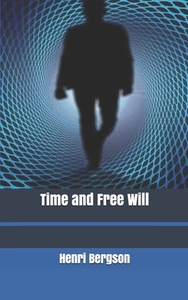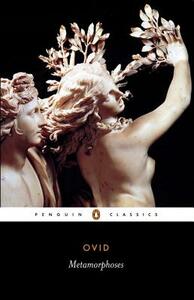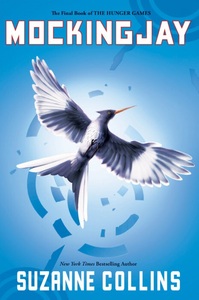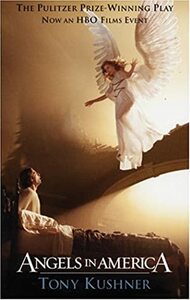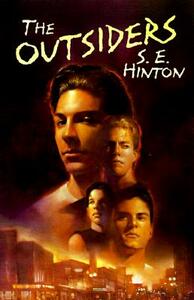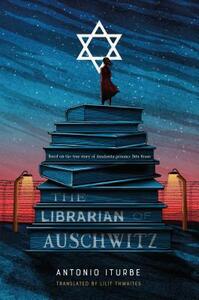Take a photo of a barcode or cover
blindmanbaldwin's Reviews (69)
Dense but interesting in its arguments on intervals and continuity, particularly as it relates to decision-making.
Great summary of discourse in free will and determinism, with analysis of the spectrum of arguments in all directions. As someone with no formal philosophy education, I found this text accessible.
Weaving together many Greco-Roman myths, "Metamorphoses" is a good introduction to someone with only cursory background knowledge into this material. We see common themes of passion overtaking reason in a variety of contexts.
Figure for my first-ever Goodreads post, no better than a book written by a Twitter mutual! Few things scarier than writing fiction in any form, and that fear gets magnified when the writing gets shared with other people — and cranked up even further when it comes in a physical book. When it’s printed, it’s final. It will exist as long as the paper exists. Can’t be pulled from a digital platform or deleted. It is there, on the shelf. So here it is, sitting next to me on my desk on my stack of books, “Tomorrow’s Storm”. A physical book with pages and everything, written by someone I know on Twitter. A book that will exist with all my mountain of books. Quite the heavy thought!
With this existential dread on a Sunday afternoon out of the way — how is it?
The great strength of “Tomorrow’s Storm” is the characters. As I see it, we have three major characters here who the story turns around: Polaris, Cyrus, and Ira. The first two belong to the “light” world and the later is the king of the “dark”, but as would be expected — these characters feel trapped and uncertain about their place in their respective world. It all relates to their parentage: Polaris has an important father who she has pretty stark ideological disagreements with (as most teenage girls do with their dads, I reckon), Cyrus is an orphan harboring a dark secret that he fears will isolate him from his friends, and Ira is a bit of a chosen usurper with no ties to royalty had come up through the house.
Ira is a bit of a Moses-figure, come to think of it — if Moses hadn’t left Egypt and instead came up through the Pharaoh’s lineage. His journey ends up fitting this archetype, as he is called into a different world. A promised land, of sorts. One to bring the boon to his own people suffering in a land of the dead. But the usurper will never be what he is not. In this case, that’s a good thing. Ira (later “Apollo”) wasn’t supposed to be this menace, rather he was molded away from his nature in order to become a tyrant. Which reflects in Ira’s actual motivation. He conquers and kills and maims and brings chaos, but he doesn’t do this because he wants power in the material sense. Rather, he’s looking for a way to bring back his own dead parents. He’s trying to reclaim a life that was lost to him long ago. But we can’t change the past — whether this is Cyrus with his own parents or Ira with his. We can only change what we do now. The dead are dead, the living are alive. When the burning bush calls to you, there’s only one people you can help.
This ends up becoming the core theme, as I see it, of “Tomorrow’s Storm” — moving forward. Which fits well within the coming-of-age/teen journey story archetype of the novel. Everyone has regrets, things they hate and wish they can undo. But that’s all set in stone. Once it is done, it is done. In a crucial moment in the finale, Polaris faces the death of her mother (the parent she has a closer relationship with) and ends up having the opportunity to strike down her mother’s killer — but this would come at the cost of saving the people who are still here. She makes the only choice can make, letting go of her own anger to help the living. Or Cyrus, too, whose moral quandary and inability to forgive himself (straight out of Schrader lead), sends him into a literal death-land and at the threshold of becoming some unrestrained evil. But through the compassion of his friends, he ends up being able to let go and accept he can’t change things. It’s the problem Ira faces, too — his pursuit to bring back the past ends up robbing him of his present. Once they all let go of this, they can press on.
The milieu of the novel is typical of fantasy stylings: big castles, wars, descriptive lore and sacred prophecies. Not really my thing, but a lot of people will appreciate that stuff far more than I can. It takes a bit of time to get into the actual plot into motion, where the two worlds collide and conflict between. This does create a bit of a slowdown in the first chunk (thirdish) of the novel, but this is offset by cutting across the two worlds and painting the dynamic between the character groups (Ira and his court, Polaris/Cyrus and their friends). I’m not equipped to speak on the actual writing mechanics of the novel — I’m used to screenplays where prose is not a thing — but I will say it kept me reasonably engaged where a lot of other novels of this style I’ve tried to read have left me rolling my eyes. There are still the hokey bits to the book, but that’s too be expected of the genre. It’d be like complaining about the cheesiness of a toku show! And, really, what actually matters (the story) is fine. The character-journeys work, the conflict feels right, and the transformation of the finale creates a fulfilling narrative in line with the rest of the text.
There are books I’ve read that I’ve hid or donate because I did not like them, so thoroughly disgusted with the bullshit that I felt like a mark for spending my money on them, but “Tomorrow’s Storm” is most certainly not one of those novels. I am glad I bought the novel, and I am glad I have a physical book to put on my shelf and remember that a guy I know on Twitter wrote a book with some neat characters and a world that fits the metaphor/theme of the story.
With this existential dread on a Sunday afternoon out of the way — how is it?
The great strength of “Tomorrow’s Storm” is the characters. As I see it, we have three major characters here who the story turns around: Polaris, Cyrus, and Ira. The first two belong to the “light” world and the later is the king of the “dark”, but as would be expected — these characters feel trapped and uncertain about their place in their respective world. It all relates to their parentage: Polaris has an important father who she has pretty stark ideological disagreements with (as most teenage girls do with their dads, I reckon), Cyrus is an orphan harboring a dark secret that he fears will isolate him from his friends, and Ira is a bit of a chosen usurper with no ties to royalty had come up through the house.
Ira is a bit of a Moses-figure, come to think of it — if Moses hadn’t left Egypt and instead came up through the Pharaoh’s lineage. His journey ends up fitting this archetype, as he is called into a different world. A promised land, of sorts. One to bring the boon to his own people suffering in a land of the dead. But the usurper will never be what he is not. In this case, that’s a good thing. Ira (later “Apollo”) wasn’t supposed to be this menace, rather he was molded away from his nature in order to become a tyrant. Which reflects in Ira’s actual motivation. He conquers and kills and maims and brings chaos, but he doesn’t do this because he wants power in the material sense. Rather, he’s looking for a way to bring back his own dead parents. He’s trying to reclaim a life that was lost to him long ago. But we can’t change the past — whether this is Cyrus with his own parents or Ira with his. We can only change what we do now. The dead are dead, the living are alive. When the burning bush calls to you, there’s only one people you can help.
This ends up becoming the core theme, as I see it, of “Tomorrow’s Storm” — moving forward. Which fits well within the coming-of-age/teen journey story archetype of the novel. Everyone has regrets, things they hate and wish they can undo. But that’s all set in stone. Once it is done, it is done. In a crucial moment in the finale, Polaris faces the death of her mother (the parent she has a closer relationship with) and ends up having the opportunity to strike down her mother’s killer — but this would come at the cost of saving the people who are still here. She makes the only choice can make, letting go of her own anger to help the living. Or Cyrus, too, whose moral quandary and inability to forgive himself (straight out of Schrader lead), sends him into a literal death-land and at the threshold of becoming some unrestrained evil. But through the compassion of his friends, he ends up being able to let go and accept he can’t change things. It’s the problem Ira faces, too — his pursuit to bring back the past ends up robbing him of his present. Once they all let go of this, they can press on.
The milieu of the novel is typical of fantasy stylings: big castles, wars, descriptive lore and sacred prophecies. Not really my thing, but a lot of people will appreciate that stuff far more than I can. It takes a bit of time to get into the actual plot into motion, where the two worlds collide and conflict between. This does create a bit of a slowdown in the first chunk (thirdish) of the novel, but this is offset by cutting across the two worlds and painting the dynamic between the character groups (Ira and his court, Polaris/Cyrus and their friends). I’m not equipped to speak on the actual writing mechanics of the novel — I’m used to screenplays where prose is not a thing — but I will say it kept me reasonably engaged where a lot of other novels of this style I’ve tried to read have left me rolling my eyes. There are still the hokey bits to the book, but that’s too be expected of the genre. It’d be like complaining about the cheesiness of a toku show! And, really, what actually matters (the story) is fine. The character-journeys work, the conflict feels right, and the transformation of the finale creates a fulfilling narrative in line with the rest of the text.
There are books I’ve read that I’ve hid or donate because I did not like them, so thoroughly disgusted with the bullshit that I felt like a mark for spending my money on them, but “Tomorrow’s Storm” is most certainly not one of those novels. I am glad I bought the novel, and I am glad I have a physical book to put on my shelf and remember that a guy I know on Twitter wrote a book with some neat characters and a world that fits the metaphor/theme of the story.
Class is the key word here. Canon explores the development of plea bargains through class analysis. The elites and status quo power could not accept liberalizing the jury box, so they instead opted to (de facto) get rid of it. Throughout the book, Canon pulls back to this being the same force that curtailed the American labor movement.
We've created a class of undesirables and untouchables, and we make them brand themselves as such. Then because we forced them into branding themselves, we deny them any appeals or rights. Forced into signing away your own soul.
We've created a class of undesirables and untouchables, and we make them brand themselves as such. Then because we forced them into branding themselves, we deny them any appeals or rights. Forced into signing away your own soul.
Interesting how television is the ultimate weapon here. This idea recurs through all three books, but it's at its most apparent in "Mockingjay" during an actual war going on. A quick search tells me Collins spent years working as a television writer, which puts that into a new context!
I still don't know how I want to use Goodreads — but because I'm me I'll inevitably end up writing something. "The Hunger Games" is my favorite of the three. That book has a great propulsion to it where we're pulled into a strange world and unpack all of the horrors. "Catching Fire" starts slow but finishes strong. "Mockingjay" is the opposite where it moves at the start but sort of falls apart in the ending. Finale here is rather passive, with certain big emotional beats not having a lot of weight as a result.
Even so — the books bind together in image. Television is the weapon, the false reality played here. Throughout all three books, we see Katniss work towards understanding truth/trust. What can she believe in? It's not ideology. It's not revenge. Ultimately, it's love. Here, in "Mockingjay", this theme plays out through Peeta's brainwashing. He's stuck in an artificial world and she has to pull him out through reality. But to teach him reality, she has to teach herself reality. It's not as well-crafted in the structure as it could be, but it's there and it resonates.
Katniss is this savior not for anything she is but because of the image. Except the only reason the image had power is because of who she is. The love was just a story but it was always real — she just didn't know it at the start.
Desire makes a character. Ironic desire makes a well-written character. At the first book, Katniss doesn't want to ever get married or have children because of the cruel world that targets children. It's ironic — Katniss has so much love/compassion in her heart she locks it up. So her real desire is to change the whole world. Once that happens, no surprise she is able to unlock her heart.
It's fine. I enjoyed how bloody and visceral it gets within the context of a book for kids. Especially like how broken Katniss is psychologically. She is tired. Someone once said an easy way to make a story is to write the worst day in a character's life, and that most certainly applies here!
I still don't know how I want to use Goodreads — but because I'm me I'll inevitably end up writing something. "The Hunger Games" is my favorite of the three. That book has a great propulsion to it where we're pulled into a strange world and unpack all of the horrors. "Catching Fire" starts slow but finishes strong. "Mockingjay" is the opposite where it moves at the start but sort of falls apart in the ending. Finale here is rather passive, with certain big emotional beats not having a lot of weight as a result.
Even so — the books bind together in image. Television is the weapon, the false reality played here. Throughout all three books, we see Katniss work towards understanding truth/trust. What can she believe in? It's not ideology. It's not revenge. Ultimately, it's love. Here, in "Mockingjay", this theme plays out through Peeta's brainwashing. He's stuck in an artificial world and she has to pull him out through reality. But to teach him reality, she has to teach herself reality. It's not as well-crafted in the structure as it could be, but it's there and it resonates.
Katniss is this savior not for anything she is but because of the image. Except the only reason the image had power is because of who she is. The love was just a story but it was always real — she just didn't know it at the start.
Desire makes a character. Ironic desire makes a well-written character. At the first book, Katniss doesn't want to ever get married or have children because of the cruel world that targets children. It's ironic — Katniss has so much love/compassion in her heart she locks it up. So her real desire is to change the whole world. Once that happens, no surprise she is able to unlock her heart.
It's fine. I enjoyed how bloody and visceral it gets within the context of a book for kids. Especially like how broken Katniss is psychologically. She is tired. Someone once said an easy way to make a story is to write the worst day in a character's life, and that most certainly applies here!
A national identity built around movement comes to the ultimate stopping point of death. How do we respond?
Roy Kohn is America. He lost but he won but he lost. Bullshit wordsmith who knows power is language, language is everything, and truth is nothing. But language absent truth leads to contradiction. A man who persecuted LGBTQ+ people was himself a gay man who refused an ounce of solidarity. Louis, here, is a baby Kohn — a man who says a lot but means nothing and has an empty heart. These are two people who want everything to remain as it is but that is impossible.
God moved on. So too must we.
Roy Kohn is America. He lost but he won but he lost. Bullshit wordsmith who knows power is language, language is everything, and truth is nothing. But language absent truth leads to contradiction. A man who persecuted LGBTQ+ people was himself a gay man who refused an ounce of solidarity. Louis, here, is a baby Kohn — a man who says a lot but means nothing and has an empty heart. These are two people who want everything to remain as it is but that is impossible.
God moved on. So too must we.
Real intimacy here. It's short and a lot of bits don't get space for breathe, but "The Outsiders" has a lot of resonance in the angst/uncertainty. The boy lives in this world he shouldn't live in but the genetic lottery put him in, and the struggle of his identity (thoughtful/emotional) with his community opposed to these things drives it forward. Tenderness destroyed by a violent world. Rumbles hurt you just as much as the ones you hurt. Real down ending here, one that is authentic to the world of the book — with one glimmer of light giving hope that the identity can be reconciled with the world.
Structured in a way reminiscent of epics: there are a lot of characters over a large period of time. The titular librarian, Dita, serves as the connective tissue for all of the people suffering at Auschwitz. At first, this book's crosscutting of time and of people can be an adjustment. It doesn't take too long to understand it, and this choice works well — the people of Auschwitz live in the camp but their minds wander to the solace of memory. Books serve as a balm to the suffering; books are an act of defiance. Everything decays in the camp but the books ignite a spark within to keep them alive.
Humans living under one of the most inhumane, evil regimes ever. They want these people to die and their refusal to die is their greatest rebellion. The book succeeds in spades in dramatizing the lives and culture lost by the actions of Germany and the complicity of the world. This evil consumed millions. It's on us to stop these rising flames of hatred and bigotry again.
Are we the last ones left alive?
Are we the only human beings
To survive?…
Humans living under one of the most inhumane, evil regimes ever. They want these people to die and their refusal to die is their greatest rebellion. The book succeeds in spades in dramatizing the lives and culture lost by the actions of Germany and the complicity of the world. This evil consumed millions. It's on us to stop these rising flames of hatred and bigotry again.
Are we the last ones left alive?
Are we the only human beings
To survive?…
Central concept here — divine figure coming out of the "spiritual" world into the "material" world to aid the suffering of their people — is quite strong. Unfortunately, the book takes a breadth over depth approach. This works in conveying the struggle of slavery and the movement escaped slaves took on the Underground Railroad. However, because the novel is ~200 pages and travels through all stages of this wretched saga it means sequences don't have moments to breathe. At times, it feels more akin to a treatment rather than a finished product. We are told characters' desires and motivations, but we don't get to see them develop or get challenged. We are told relationships have a lot of weight but we don't see that weight get earned. All unfortunate it lacks depth in these areas for me, because the central concept is powerful and there are moments where the vision comes through.
